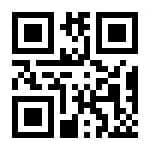VSS Is Pleased to Announce the Second Annual “Meet the Professors” Event for Students and Postdocs
Monday, May 22
4:45 to 6:00 pm
(before the Demo Night BBQ)
Breck Deck North
This will be an opportunity for a free-wheeling, open-ended discussion with members of the VSS Board and a number of other professors. You might chat about science, the meeting, building a career, or whatever comes up.
The event will consist of two 30-minute sessions separated by a 15-minute snack break. Please select a different professor for each session. Participants must pre-register. Space is limited and is assigned on a first-come, first-served basis.
Professors and VSS Board Members
David Brainard* (University of Pennsylvania) studies human color vision, with particular interests in the consequences of spatial and spectral sampling by the photoreceptors and in the mechanisms mediating color constancy.
Eli Brenner* (Free University, Amsterdam) studies how visual information is used to guide our actions.
Marisa Carrasco (NYU) uses human psychophysics, neuroimaging, and computational modeling to investigate the relation between the psychological and neural mechanisms involved in visual perception and attention.
Isabel Gauthier (Vanderbilt University) uses behavioral and brain imaging methods to study perceptual expertise, object and face recognition, and individual differences in vision.
Julie Harris (St. Andrews) studies our perception of the 3D world, including binocular vision and 3D motion. She also has an interest in animal camouflage.
Sheng He (University of Minnesota & Institute of Biophysics, CAS) uses psychophysical and neuroimaging (fMRI, EEG, MEG) methods to study spatiotemporal properties of vision, binocular interaction, visual attention, visual object recognition, and visual awareness.
Michael Herzog (EPFL – Switzerland) studies spatial and temporal vision in healthy and clinical populations.
Todd Horowitz (National Cancer Institute) is broadly interested in how vision science can be leveraged to reduce the burden of cancer, from improving detection and diagnosis to understanding the cognitive complaints of cancer survivors.
Lynne Kiorpes* (NYU) uses behavioral and neurophysiological approaches to study visual development and visual disability. The goal is to understand the neural limitations on development and the effects of abnormal visual experience.
Dennis Levi (UC Berkeley) studies plasticity both in normal vision, and in humans deprived of normal binocular visual experience, using psychophysics and neuroimaging.
Ennio Mingolla (Northeastern) develops and tests of neural network models of visual perception, notably the segmentation, grouping, and contour formation processes of early and middle vision in primates, and on the transition of these models to technological applications.
Concetta Morrone (University of Pisa) studies the visual system in man and infants using psychophysical, electrophysiological, brain imaging and computational techniques. More recent research interests have been vision during eye-movement, perception of time and plasticity of the adult visual brain.
Tony Norcia* (Stanford University) studies the intricacies of visual development, partly to better understand visual functioning in the adult and abnormal visual processing.
Aude Oliva (MIT) studies human vision and memory, using methods from human perception and cognition, computer science and human neuroscience (fMRI, MEG)
Mary Peterson (University of Arizona) uses behavioral methods, neuropsychology, ERPs, and fMRI to investigate the competitive processes producing object perception and the interactions between perception and memory.
Jeff Schall* (Vanderbilt University) studies the neural and computational mechanisms that guide, control and monitor visually-guided gaze behavior.
James Tanaka (University of Victoria) studies the cognitive and neural processes of face recognition and object expertise. He is interested in the perceptual strategies of real world experts, individuals on the autism spectrum and how a perceptual novice becomes an expert.
Preeti Verghese* (Smith-Kettlewell Eye Research Institute) studies spatial vision, visual search and attention, as well as eye and hand movements in normal vision and in individuals with central field loss.
Andrew Watson* (Apple) studies human spatial, temporal and motion processing, computational modeling of vision, and applications of vision science to imaging technology.
Jeremy Wolfe* (Harvard Med & Brigham and Women’s Hospital) studies visual attention and visual search with a special interest in socially important tasks like cancer screening in radiology.
Note: Members of the VSS Board are indicated with an asterisk*, in case you have a specific interest in talking to a board member.
Register for “Meet the Professors”

